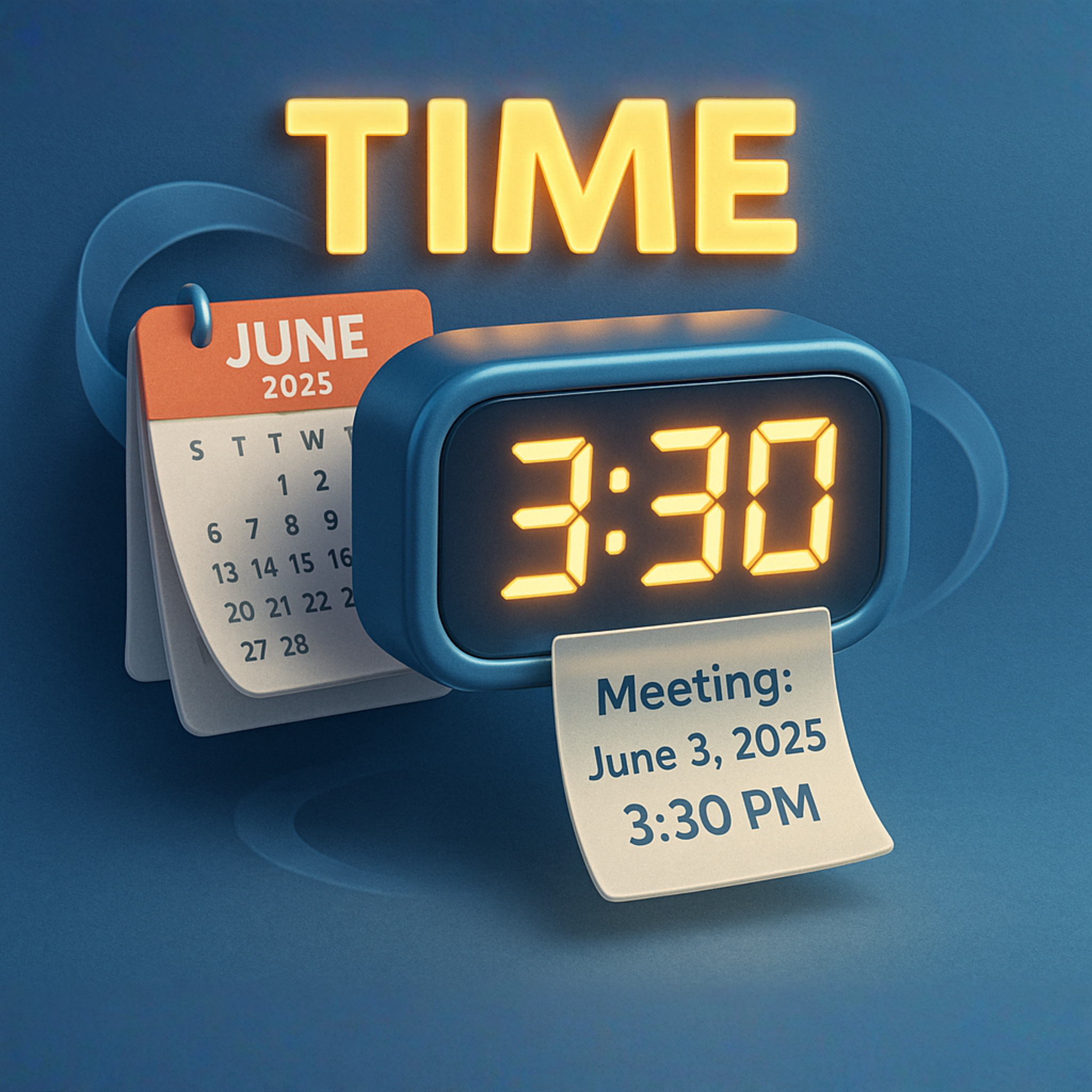Time
Definition
Time is a continuous and measurable progression of existence and events from the past, through the present, and into the future. It can also refer to a specific point or period when something occurs.
Parts of Speech
- Noun
- Verb
Pronunciation
American English
- IPA Pronunciation: /taɪm/
- Respelling: TIME
British English
- IPA Pronunciation: /taɪm/
- Respelling: TIME
Etymology
The word "time" originates from Old English "tīma," meaning "a limited space of time or season," derived from Proto-Germanic "*tīmon" and Proto-Indo-European "*di-mon-" (division of the day). It is related to Old Norse "tími" and Dutch "tijd," which also mean "time."
Derivatives
- Timely (adjective)
- Timing (noun)
- Timeless (adjective)
- Timeout (noun)
- Overtime (noun)
Synonyms
- Duration
- Moment
- Period
Antonyms
- Eternity
- Timelessness
- Infinity
Usage
The noun "time" is used to describe the passage of moments or specific points, such as "What time is it?" As a verb, it refers to measuring or scheduling, for example, "He timed the race with a stopwatch."
Related Terms
- Clock: A device used to measure and display time.
- Calendar: A system for organizing days and events in time.
- Schedule: A plan for when events or activities will occur.
Detailed Definitions
Noun
- The indefinite continued progress of existence and events: Refers to the ongoing flow of moments.
- Example: "Time flies when you're having fun."
- A specific point or period when something occurs: Refers to a designated moment or era.
- Example: "The meeting is scheduled for a later time."
- A measurable quantity used to track events: Refers to units such as seconds, minutes, or hours.
- Example: "The race was completed in record time."
Verb
- To measure the duration of something: Refers to recording how long an activity takes.
- Example: "He timed the lap with precision."
- To schedule or plan something: Refers to arranging events to occur at a particular moment.
- Example: "The concert was timed to start at sunset."
time








